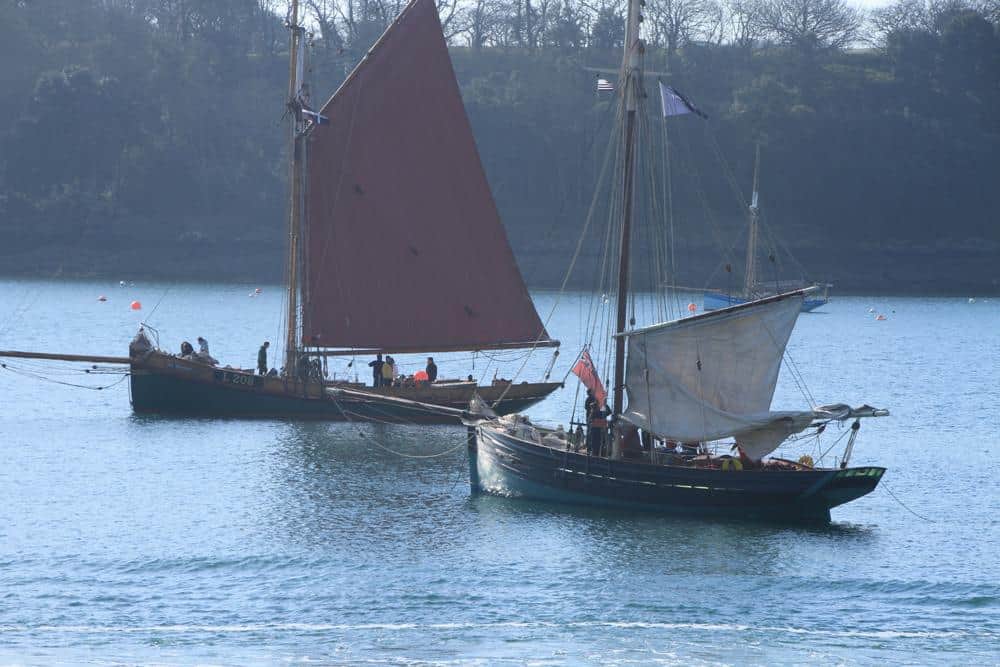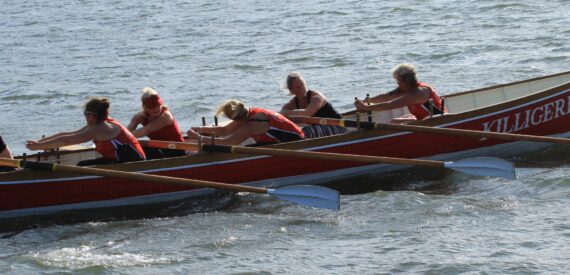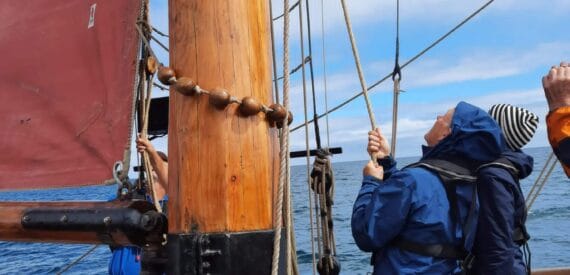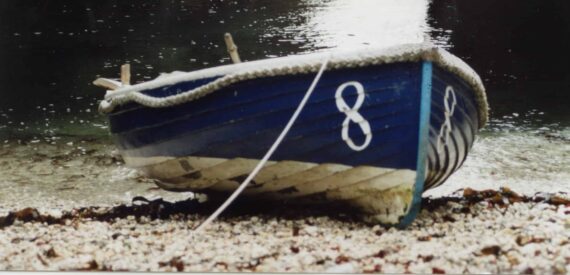How to Be Helpful in the Morning
As guest crew on a well run skippered charter voyage you may not be aware of even half the things that go on every morning before you cast off for your next coastal passage. That’s fine if you have come on board to relax and avoid anything that smacks of a jobs list. Just let it all wash over you until you hear the magic words – “Who would like to steer?”
However if you prefer to be useful then the professional crew will generally love a well placed ‘hero’ who is already dressed appropriately for the day and eagerly (or nonchalantly) waiting on deck for a task, even if it is just taking the rubbish ashore or coiling a water hose.
Here are a few tips from Debbie on how to be the perfect guest crew when it comes to preparing for sea.
I used to skipper pilot cutter ‘Eve of St Mawes’ on my own with 6 guests so I became quite used to roping them all into boat preparation tasks in a painless way. If I hadn’t involved the guests, we would never have left the quayside before 10am.
When I taught RYA day skipper courses on Eve I used to give them the checklist below if they were in charge for the day. It is a long list – but mostly mental prompts to do things like turn the VHF on or make sure everyone had come back from the showers ashore!!
How to be Watch Leader Material (really helpful in the morning)
This is an approach that needs a bit more care. Even if the crew are a well oiled machine, they will generally appreciate some early morning help if it is going to speed the process of preparing for sea. Plenty of tasks are easier with 2 people, like reducing the number of mooring warps or turning them into slipping lines.
Please don’t leap in with the checklist below and start doing things without getting the crews permission. Every ship is different. Not every departure needs this much preparation. Some bigger vessels have to do even more before they leave.
If you genuinely want to be noticed as potential watch leader or deckhand then you might want to help for a few mornings, and then ask if there are any tasks you can sort out on your own.

Skippers ‘Preparing for Sea’ Checklist
A free handout checklist from Debbie at Classic Sailing. I wrote it for Day Skipper candidates on 38ft gaff cutter Eve of St Mawes. We didn’t always apply it to the letter, as some days were just instruments on, tides, forecast, breakfast, slip and go……It could be apply to 38ft cutters up to much bigger sailing vessels. If it seems a little prescriptive and over the top, I should explain that it was refined from a list I created when I sailing on large 72ft sail training yachts. I was competing to impress, with several trainee mates falling over themselves to get ready for sea and lots of reluctant teenagers. With intelligent adults, delegation is the key.
ON DECK
Fill up with water / rubbish ashore
Choose which sails to prepare / hank on
Reef or not ?
All halliards attached
Jib rigged on port or starboard
Remove any boom / gaff / tiller securing ropes
Dinghy on board or tow ?
Warps – how does skipper want to leave ?
Prepare warps – slips / single up
Anchor ready for emergencies
SAFETY EQUIPMENT
Daily checks – guardrails, lifebuoys, jackstays
NAVIGATION (keep everyone else out your hair and delegate)
Forecast – and check conditions on deck
Sail plan for wind forecast (tell deck crew what to prepare)
Tidal stream atlas filled in for day
Tidal curve(s) prepared for start and finish ports
Charts ready and in order
Pilotage plan out
Pilotage plan into destination
Alternatives
Decide where to put sails up
Switch instruments on and VHF
Have an approx course to steer for first part of passage.
ENGINE
Daily checks
Switch on
Check gears and tiller before setting off
Check water cooling is coming out
Check nav lights
GALLEY & DOMESTICS
Galley well stowed
Snacks handy
Shut forward vents and secure hatches
Get everyone to stow gear safely
CREW
Chart Briefing from skipper
Allocate watches if appropriate
Appropriate clothing and harnesses
Deck Briefing
Head count before leaving !!
UNDERWAY
Secure anchor
Fenders & warps away
Check log and GPS/ note departure in log
Inform coastguard for passages





